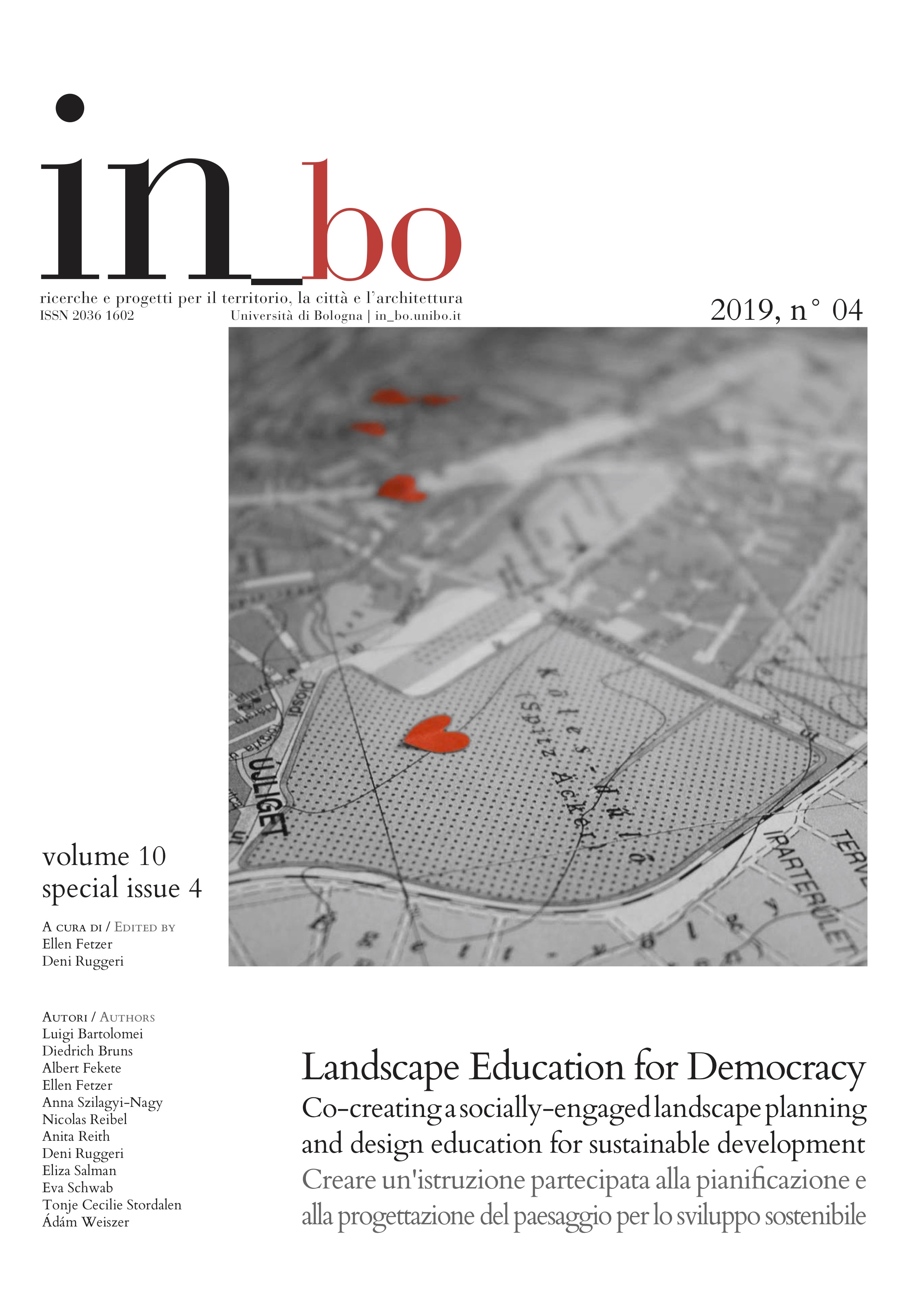Landscape Education for Democracy: Methods and Methodology
DOI:
https://doi.org/10.6092/issn.2036-1602/9850Keywords:
participatory action research, landscape democracy, computer-supported collaborative learning, opening-up education, landscape educationAbstract
The LED project develops and implements a model for filling a gap in contemporary landscape planning and design education. We observed that contemporary Landscape Architecture and Planning education exposes students to a traditional and obsolete consultancy- driven understanding of the profession, subservient to the social needs and wishes of private clients, rather than preparing them to fulfill the social responsibility as advocates or ‘trustees’ of the larger society (Horrigan and Bose 2018). The Landscape Education for Democracy (LED) programme used a blended pedagogical format, consisting of online teaching sessions and on-site summer intensives, with the purpose to expose students and young professionals in landscape planning and design to an emergent area of practice that is re-defining design as a collaborative act of co-creation in partnership between experts and civil society. In designing the course, we sought to engage many perspectives so that we could attract the most diverse audiences and making an impact that wanted students to transcend the boundaries of our campuses. In designing the LED seminar, the project partners wanted to fulfill the Erasmus + Strategic Partnership Programme’s mandate to foster transdisciplinary, cross-cultural learning for both students and educators involved by introducing into the curricula of each institution digital learning settings. Students who enroll in the course are expected to do so as active participants. On individual and group assignments where they engage in an open dialogue across professional and cultural boundaries, The LED programme is similar to immersive Erasmus exchanges, teaching and learning approaches which were co-created by the project partners and were refined thanks to an iterative feedback loop with the students and instructors involved in both the online seminar sessions, as well with further intensive summer workshops that followed them.
Altogether, they form the pedagogical framework of both the LED online courses and the Intensive Study Programmes (ISP; also IP). This chapter also reflects the role of the internet and web-based educational environments for achieving LED objectives. The web-based mode enabled the participation of a broad and diverse range of interested learners, regardless of their financial possibilities or proximity. The following is an illustrated account of how the learning activities have been conceived and it focuses on the role of ICT technologies for the development of procedural competences which are also relevant for LED qualification.
Downloads
Published
How to Cite
Issue
Section
License
Copyright (c) 2019 Ellen Fetzer, Deni Ruggeri
Copyrights and publishing rights of all the texts on this journal belong to the respective authors without restrictions.
This journal is licensed under a Creative Commons Attribution-NonCommercial 4.0 International License (full legal code).
See also our Open Access Policy.
Metadata
All the metadata of the published material is released in the public domain and may be used by anyone free of charge. This includes references.
Metadata — including references — may be re-used in any medium without prior permission for both not-for-profit and for-profit purposes. We kindly ask users to provide a link to the original metadata record.







